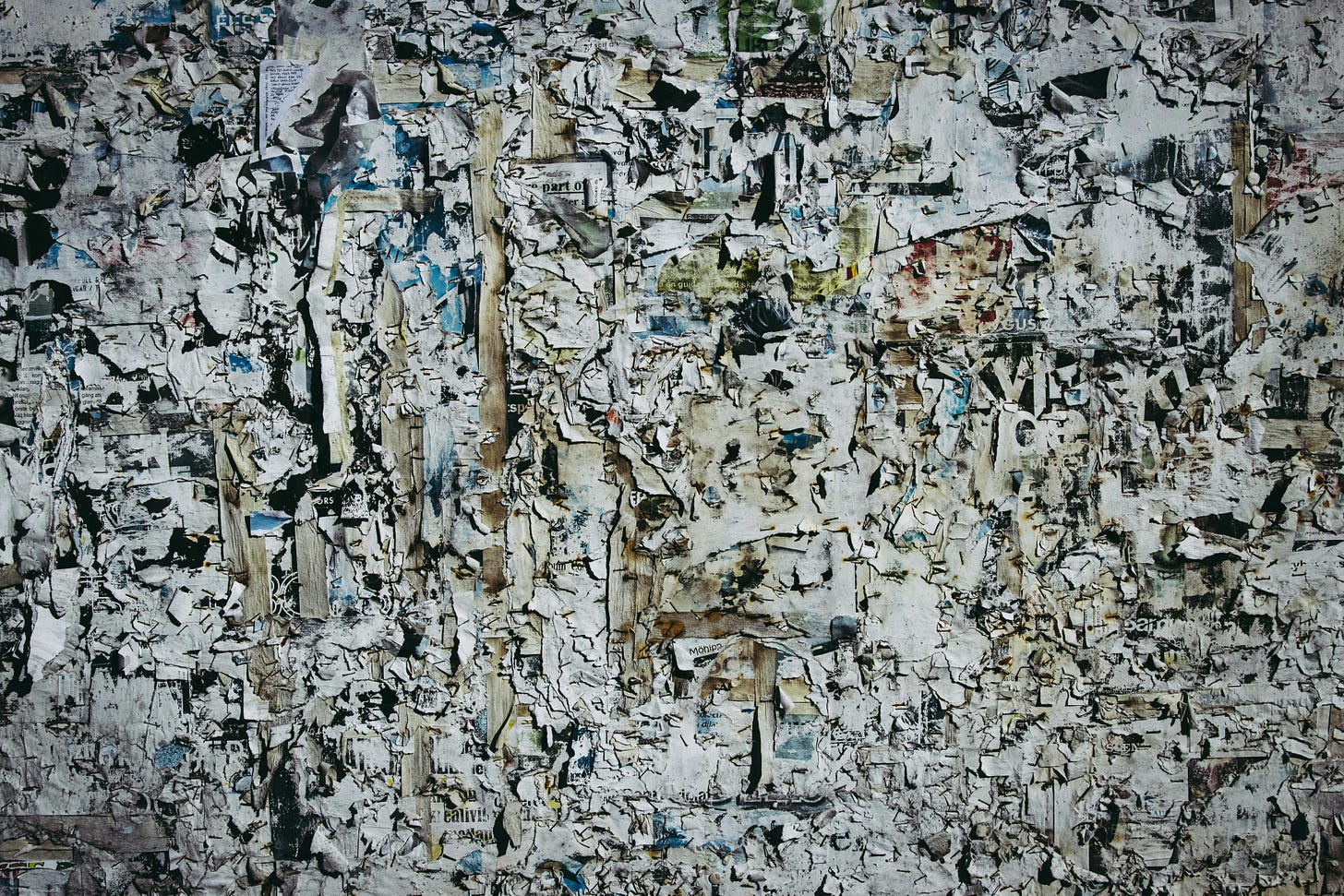Fabrics of Uncertain Future
Navigating Challenges, Fostering Adaptability, and the Power of Independent Media
Hi, Fafafoom Studio Newsletter readers. As you know, I write this newsletter as I explore the intersection of slow fashion, textile art, and climate activism. In the wake of the US Presidential election last Tuesday, I will lean heavily on the climate action part, as we had a tumultuous (and to many American citizens, shocking results of) election year.
As the readership of this newsletter reaches 47 US states and 50 countries despite its humble subscriber numbers (800+ as of time of publication), I find this an important point to address. Thank you for your support.

I have repeatedly expressed (and implied) that my sewing works - more specifically upcycling, repairing, and refashioning preloved textiles are climate actions. One of the sustainability aspects of slow fashion is the act of keeping things in circulation at their highest and best use for as long as possible. This chosen action to promote circularity not only addresses responsible consumption and production (SDG 12 goal), but also addresses at least 5 other SDG goals (13, 14, 15, 16, and 17) when we examine interconnectedness of issues.
For those of us dedicating our work to climate issues, where we directly challenge humanity’s reliance on fossil fuels and how this reliance seeps into each aspect of our modern living, the US Presidential election result is a devastating blow. Continuing the efforts to uphold the SDG goals in the face of challenges ahead will be a true test of integrity.
The days and years ahead will truly become the existential fight against time to save our lives. Sustainability and climate actions are more critical than ever, with federal funding all but expected to be greatly reduced or cut entirely. This is on top of the surefire challenges of women’s reproductive rights, healthcare, and a litany of socio-economic hardships.
Will the Democratic party be able to learn from this catastrophe? Time will tell. For now, the American people (and the world) will experience the consequences of short-term messaging failure at the expense of our net zero future.
The next administration could be good for business, even though that’s a hyper-optimistic view for tech progress at best, or a completely disastrous, displaced trust to authoritarian regime at worst. After all, the tech sector is notorious for wanting to advance the world to their image, without owning the consequences.
I personally find it disheartening that so many powerful people within this ecosystem, so-called forward thinkers and renegades, are ignoring the truly existential issues for people like women’s health, climate progress, and others for the sake of unfettered personal gain, political access, or business contracts.
But the rose-colored glasses are now completely off. It’s clear that it’s not enough to do good just because it’s the right thing to do. Aligning of values and building business cases are critical to onboard people who are not climate-focused. In the days ahead, the language around climate change may be adapted to make it more palatable as a bi-partisan solution.
What’s more important is realizing that actual climate work is done at the local level. Here in California, Prop 4 passes, which will enable the state to borrow $10 billion to go toward programs including drinking water systems, drought and flood preparations, and wildfires. The state is fortifying itself to brace the upcoming administration, and climate tech investors are already revising their expectations. More rapid adjustments are on the way, people are vigilant, and I hope we continue to be vigilant and adaptable in the long run.
The challenge of textile waste is only going to grow in scale. In response, the act to repair and upcycle will continue to grow as a radical act of resilience, especially in the coming days and years. Community gatherings for skill sharing and knowledge transfer will become more precious than ever, and we will keep on making.
“This is precisely the time when artists go to work.
There is no time to despair, no place for self-pity,
no need for silence, no room for fear.
We speak, we write, we do language.
That is how civilizations heal.”
- Toni Morrison
Last but not least, I’d like to call out the extremely important vigilance of media literacy. In the exponentially growing power of AI influence, where people can easily create fake academic papers in seconds and get crawled by Google Scholar, impediments to humanity’s progress in critical thinking has never been more clearly manifested. Independent journalists will become more important than ever, so please support them whenever you are able.
That’s all for now. I hope to greet you next time with more inspiring messages and colorful pictures. Until then, stay safe and healthy, everyone.
Thanks for reading; until next time,
Mira Musank




